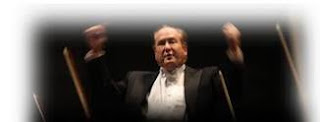Yes I know, Prince and George Michael but they are globally appreciated and their passings are widely mourned.
Here are outstanding figures in classical music, artists who gave, and gave, and gave to the benefit of us all, who may have had less reach but touched so many:
For Columbus and the World
Anne Melvin, philanthropist
Donald Harris, teacher, composer, 'Uncle figure' former Dean of the OSU College of The Arts
Bill Conner, Impresario, CEO of CAPA, mensch
Donald McGinnis, clarinetist, teacher, artist, OSU music administrator
...and for the rest of the world:
Pierre Boulez, composer and conductor
Phyllis Curtin, soprano
Gilbert Kaplan, financier and conductor
Denise Duval, Poulenc's muse
Aurele, Nicolet, Swiss flautist
Saulius Sondeckis, Lithuanian violinist and conductor
Ulf Spoderblom, Finnish conductor
Louis Lane, American conductor
Steven Stucky, American composer
Robert Baustian, American opera conductor and teacher
Otto-Werner Mueller, German born American conductor and teacher
Nikolaus Harnoncourt, Austrian conductor
Sir Peter Maxwell Davies, British composer
Gegham Grigorian, Armenian opera singer
Royston Nash, British conductor
Elsie Morison, Australian soprano
Brian Asawa, American counter tenor
Gustav Meier, Swiss-born American conductor
J. Reilly Lewis, American conductor
Alberto Remedios, British tenor
Edoardo Muller, Italian conductor
Maralin Niska, American soprano
Gregg Smith,m American choral conductor and composer
Einojuhanni Rautavaara, Finnish composer
Patrice Munsel, American soprano
Johan Botha, South African tenor
Sir Neville Marriner, British conductor
Peter Allen, Canadian born American radio announcer and past host of the Metropolitan Opera radio broadcasts
John Del Carlo, American bass baritone
Pauline Oliveros, American composer
Russell Oberlin, American counter tenor
Gigliola Frazzoni, Italian soprano
Karel Husa, Czech-American composer
Heinrich Schiff, Austrian cellist
60 members of the Russian Red Army Chorus, killed in a plane crash
Thanks to the peerless critic, writer and friend of music Tim Page, for this list.
Here are outstanding figures in classical music, artists who gave, and gave, and gave to the benefit of us all, who may have had less reach but touched so many:
For Columbus and the World
Anne Melvin, philanthropist
Donald Harris, teacher, composer, 'Uncle figure' former Dean of the OSU College of The Arts
Bill Conner, Impresario, CEO of CAPA, mensch
Donald McGinnis, clarinetist, teacher, artist, OSU music administrator
...and for the rest of the world:
Pierre Boulez, composer and conductor
Phyllis Curtin, soprano
Gilbert Kaplan, financier and conductor
Denise Duval, Poulenc's muse
Aurele, Nicolet, Swiss flautist
Saulius Sondeckis, Lithuanian violinist and conductor
Ulf Spoderblom, Finnish conductor
Louis Lane, American conductor
Steven Stucky, American composer
Robert Baustian, American opera conductor and teacher
Otto-Werner Mueller, German born American conductor and teacher
Nikolaus Harnoncourt, Austrian conductor
Sir Peter Maxwell Davies, British composer
Gegham Grigorian, Armenian opera singer
Royston Nash, British conductor
Elsie Morison, Australian soprano
Brian Asawa, American counter tenor
Gustav Meier, Swiss-born American conductor
J. Reilly Lewis, American conductor
Alberto Remedios, British tenor
Edoardo Muller, Italian conductor
Maralin Niska, American soprano
Gregg Smith,m American choral conductor and composer
Einojuhanni Rautavaara, Finnish composer
Patrice Munsel, American soprano
Johan Botha, South African tenor
Sir Neville Marriner, British conductor
Peter Allen, Canadian born American radio announcer and past host of the Metropolitan Opera radio broadcasts
John Del Carlo, American bass baritone
Pauline Oliveros, American composer
Russell Oberlin, American counter tenor
Gigliola Frazzoni, Italian soprano
Karel Husa, Czech-American composer
Heinrich Schiff, Austrian cellist
60 members of the Russian Red Army Chorus, killed in a plane crash
Thanks to the peerless critic, writer and friend of music Tim Page, for this list.




























